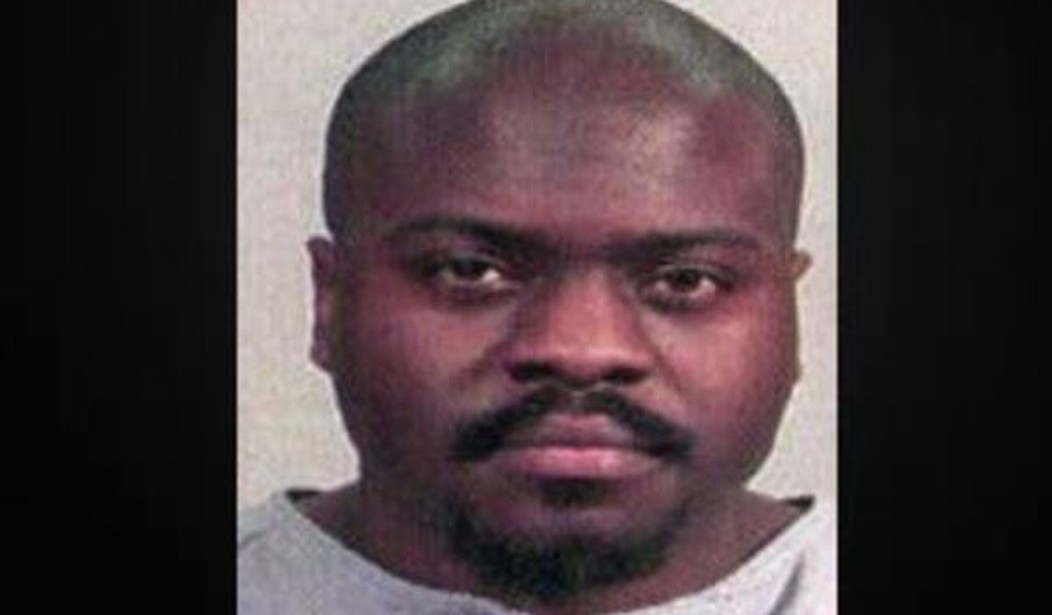Gentle reader, silence the phones, secure the doors, and draw the curtains. And, perhaps most important, if you are the parent of college students home for the summer, make sure the little darlings are safely away from what you are about to read lest they be triggered into a coma. When you have finished this column, clear your browser history, delete your cookies, and tell no one of what you have read. We are about to discuss a topic so disturbing, so debasing, so injurious to the soul that, even if you’re made of such strong stuff that you make it all the way to the end of the piece, you may nonetheless feel the need for psychological help.
Today we’ll be discussing the “N-word.” What’s more, if you are so bold as to read the documents linked to below, you’ll actually see the word spelled out. Take a moment to collect yourself before proceeding, if you dare.
I realize, gentle reader, that even the suggestion of the word, the merest hint that someone, somewhere, used it in a sentence, demands that all bien pensant people pretend to be horrified, as one now-former Netflix executive recently learned too late. Surely there will come a day when even the term “N-word” will be relegated to the same lexicographic dungeon where today can be found the word it euphemizes, and some other term will have to be found to replace it. (How about “the word that starts with the letter between M and P?” Awkward, surely, but a small price to pay for social advancement.)
So, for those still with us, what brings us to this forbidden territory? It is the allegation that a now-retired Los Angeles Police Department homicide detective once used the word while in conversation with friends over drinks.
Some disclosure is called for here: the retired detective in question is Brian McCartin, with whom I worked when we were both patrol officers more than 30 years ago. Our paths in the LAPD diverged from there, but we encountered each other on friendly terms many times over the years. I never knew him to be anything other than an excellent street cop, and nothing I witnessed while working with him nor anything I’ve heard about him since would suggest he was in any way biased against people of any ethnic group.
“B-b-b-but,” comes the response, “he said the N-word! He must be a racist monster!”
No, he isn’t. The Los Angeles Times story that raised the issue offers a glimpse at the relationships between police officers and the lawyers with whom they interact in court. The setting for McCartin’s alleged comment was a downtown L.A. bar frequented by, among others, lawyers and cops. It should surprise no one that cops and prosecutors socialize together, forming as they do one side of the adversarial justice system. But this bonhomie often extends to defense attorneys as well, and some criminal defendants would no doubt be shocked to learn that at the end of the court day their lawyers are at some saloon bending an elbow with the cops and prosecutors trying to put them away. They’re all just players in the sad drama that goes on all day, every day in every criminal courthouse in the country, nearly all of whom share the belief that any defendant whose case makes it through the winnowing phases of arraignment, preliminary hearing, and pretrial motions is almost certainly guilty of the charges he faces, and that his eventual fate – conviction or acquittal – depends more on the theatrical elements of the trial rather than the evidence.
Almost everyone whose employment brings them to the courthouse – cops, lawyers, judges, court clerks, interpreters – understands these things. Things can get tricky, however, when a player on one side or the other is a zealot. Defense attorneys whose zeal blinds them to the realities of the courthouse are known as True Believers, and they are loathed nearly as much by their fellow defense lawyers as they are by cops and prosecutors.
If forced to offer a guess, I’d say that Detective McCartin, while out for drinks in May 2014 with a prosecutor and an intern from the L.A. district attorney’s office, found himself unwillingly in the company of a True Believer in the person of Peter Arian, at the time a federal public defender. The conversation touched on such topics as the death penalty, drone strikes, and the detention of terror suspects at Guantanamo Bay. Again, I don’t know McCartin well, but I know him well enough to guess he fully endorsed all three.
Then the conversation turned to questions of corruption within the LAPD, with Arian making the allegation that it was common. The conversation grew heated when McCartin objected to this, and he used the N-word to describe the black gang members who made life miserable for their neighbors in South Los Angeles and whose predations supplied most of the work he performed as a homicide detective.
In later statements (here, here, and here), the lawyers expressed shock at McCartin’s use of the word, and the incident would later be litigated in the case of Cleamon “Big Evil” Johnson, a Los Angeles gang member believed to be responsible for more than twenty murders. Johnson’s attorneys claim McCartin’s use of the N-word reveals his investigation was tainted by racism.
Which brings us to another aspect of the story, one that I referred to in my last column, to wit, the historical revisionism practiced in the Los Angeles Times when reporting on the LAPD. “The May 2014 conversation,” says Times writer Corina Knoll, “. . . offers a glimpse inside a police department that tried over the last two decades to weed out the systemic, casual racism that was once an inherent part of its culture.”
That the LAPD is, or at least was, full of racists is an article of faith at the Los Angeles Times, and it often seems no news story about the department can fail to mention it. McCartin’s use of the N-word, the paper would have you believe, is but further proof of it.
But if Corina Knoll and her editors were interested in delving into McCartin’s views on race (he could not be reached for comment, according to the story), they might have inquired with family members of the many, many murder victims whose killers McCartin, over his long career as a detective, pursued, arrested, and saw sent to prison. Many, probably most of those victims were themselves black, and McCartin would not have enjoyed the reputation in the LAPD he did if he had been anything but kind and compassionate with those family members. And if McCartin’s experience dealing with murder in South Los Angeles was anything like mine, there were many times he heard black people pleading with him to “please get that [N-word] who killed my son.”
Any cop, for that matter any person at all, who knows anything about gangs and crime South Los Angeles knows what McCartin meant when he used the N-word. To pretend otherwise is a dishonest attempt to gain advantage in defending a despicable person. Worse, it is an insult to the black murder victims and their family members on whose behalf McCartin spent his career seeking justice.










Join the conversation as a VIP Member